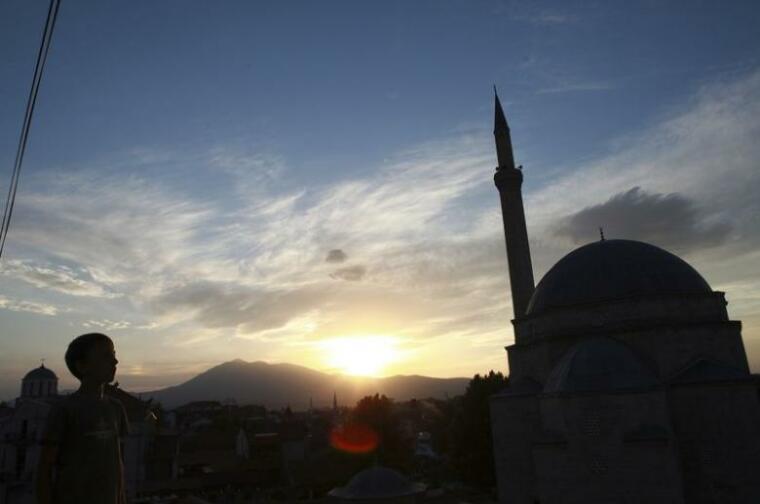Pew: Islam is most popular state religion, but Christianity is favored by many governments worldwide

A study by the Pew Research Center has found that Islam is the most popular state religion, but Christianity is favored by governments across the world even though it is not often named in a country's documents.
The Pew report found that more than 80 countries favor a specific religion, either as an official, government-endorsed religion or by giving a particular religion preferential treatment over other faiths.
The study, released on Oct. 3, was based on analysis of data covering 199 countries and territories around the world.
The findings revealed that Islam is the most common government-endorsed faith, with 27 countries, mostly in the Middle East-North Africa region, officially enshrining it as the state religion. Islam is favored in Sudan, Syria and Turkey although it is not listed as the official religion.
In contrast, Christianity is listed as the state religion of 13 countries across the globe, including the U.K., Denmark, Iceland, Costa Rica, Dominican Republic and Zambia. It is also favored by 28 other countries even though it is not named in official documents.
The researchers noted that the roles of state religions are largely ceremonial in some cases, but some come with tangible advantages in terms of legal or tax status, ownership of land or other property, and access to financial support from the government.
Buddhism is listed as the official religion in Bhutan and Cambodia, while it is favored in Burma, Laos, Mongolia, and Sri Lanka.
Judaism is named as the state religion of Israel, while multiple religions are favored in Eritrea, Indonesia, Lithuania, Serbia, and Togo.
According to the researchers, governments that favor multiple religions typically describe the faiths as "traditional" part of the country's historic culture.
Some groups belonging to the favored faiths are provided with legal or financial benefits, such as waiving the requirement as a religious group, providing funding or resources for religious education, or providing government subsidies.
In 10 countries, the governments place tight restrictions on all religious institutions or are actively hostile to religion in general. Pew lists Azerbaijan, China, Cuba, Kazakhstan, Kyrgyzstan, North Korea, Tajikistan, Turkmenistan, Uzbekistan and Vietnam as countries where government officials seek to control worship practices public expressions of religion and political activity by religious groups.
The majority of governments across the world, however, are generally neutral toward religion. As of 2015, more than 100 countries and territories included in the study do not have an official or preferred religion. While countries like the U.S. provide benefits and privileges to religious groups, no specific group is systematically favored over others.
 Christians don't have to affirm transgenderism, but they can’t express that view at work: tribunal
Christians don't have to affirm transgenderism, but they can’t express that view at work: tribunal Archaeology discovery: Medieval Christian prayer beads found on Holy Island
Archaeology discovery: Medieval Christian prayer beads found on Holy Island Presbyterian Church in America votes to leave National Association of Evangelicals
Presbyterian Church in America votes to leave National Association of Evangelicals Over 50 killed in 'vile and satanic' attack at Nigerian church on Pentecost Sunday
Over 50 killed in 'vile and satanic' attack at Nigerian church on Pentecost Sunday Ukrainian Orthodox Church severs ties with Moscow over Patriarch Kirill's support for Putin's war
Ukrainian Orthodox Church severs ties with Moscow over Patriarch Kirill's support for Putin's war Islamic State kills 20 Nigerian Christians as revenge for US airstrike
Islamic State kills 20 Nigerian Christians as revenge for US airstrike Man who served 33 years in prison for murder leads inmates to Christ
Man who served 33 years in prison for murder leads inmates to Christ


 Nigerian student beaten to death, body burned over ‘blasphemous’ WhatsApp message
Nigerian student beaten to death, body burned over ‘blasphemous’ WhatsApp message 'A new low': World reacts after Hong Kong arrests 90-year-old Cardinal Joseph Zen
'A new low': World reacts after Hong Kong arrests 90-year-old Cardinal Joseph Zen Iran sentences Christian man to 10 years in prison for hosting house church worship gathering
Iran sentences Christian man to 10 years in prison for hosting house church worship gathering French Guyana: Pastor shot dead, church set on fire after meeting delegation of Evangelicals
French Guyana: Pastor shot dead, church set on fire after meeting delegation of Evangelicals ‘Talking Jesus’ report finds only 6% of UK adults identify as practicing Christians
‘Talking Jesus’ report finds only 6% of UK adults identify as practicing Christians Mission Eurasia ministry center blown up in Ukraine, hundreds of Bibles destroyed: 'God will provide'
Mission Eurasia ministry center blown up in Ukraine, hundreds of Bibles destroyed: 'God will provide' Church holds service for first time after ISIS desecrated it 8 years ago
Church holds service for first time after ISIS desecrated it 8 years ago Burger King apologizes for 'offensive campaign' using Jesus' words at the Last Supper
Burger King apologizes for 'offensive campaign' using Jesus' words at the Last Supper Uganda: Muslims abduct teacher, burn him inside mosque for praying in Christ’s name
Uganda: Muslims abduct teacher, burn him inside mosque for praying in Christ’s name